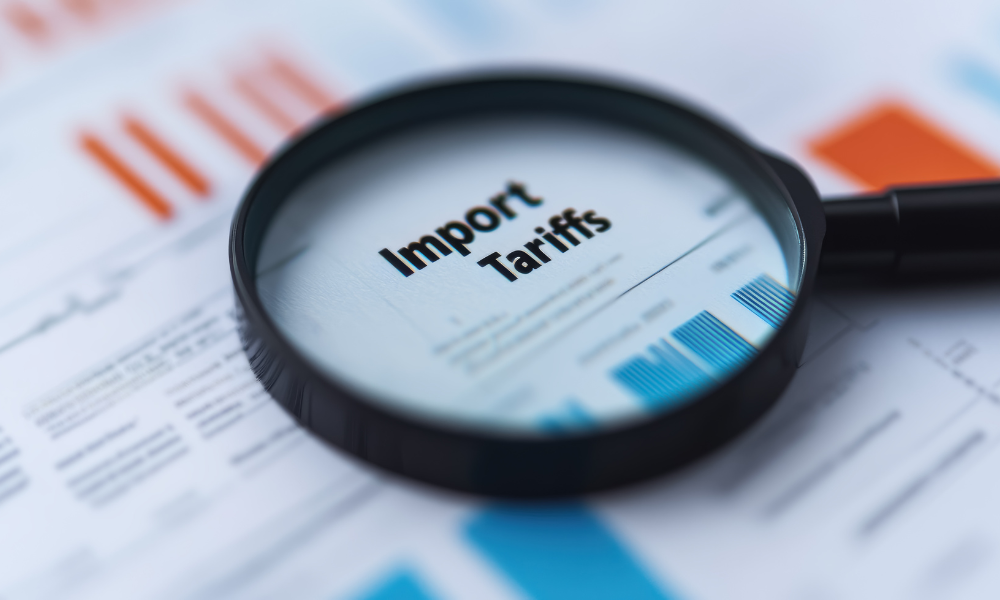Most Canadian businesses have or plan to transition goods to countries without tariffs, according to KPMG’s tariffs survey.
Eighty-eight percent of businesses reported that they had either already diverted or were thinking of diverting goods to countries not anticipating tariffs. Forty-four percent are reconfiguring supply chains to shift exports intended for the US to third-party countries.
Although US President Donald Trump has halted the imposition of 25 percent tariffs on Canadian goods for 30 days, 63 percent of the businesses surveyed expect to be affected by the new 10 percent tariffs on Chinese goods. Fifty-seven percent are shutting down production in China either because of these tariffs or forced labour issues.
Thus, KPMG Canada practitioners have urged businesses to improve resiliency and agility in their supply chains – something 83 percent of respondents agree with. These respondents have identified alternatives like sourcing and procuring alternative materials, predicting demand and managing supply streams, changing inventory deployment strategies, reviewing contracts, implementing technology to mitigate disruptions, optimizing logistics, and monitoring for risks through what-if scenarios.
“The uncertainty caused by potential tariffs on Canadian goods and newly-imposed tariffs on China has made it very difficult for Canadian companies to plan, operate and stay competitive,” said Alain Sawaya, national leader of KPMG Canada’s supply chain practice, in a statement. “With Canada caught in the trade crosshairs of the US and China, industries that depend on suppliers and customers - such as manufacturing – are especially vulnerable to increased costs, delayed shipments, and disrupted production and planning schedules.”
Sawaya pointed out that smaller suppliers may struggle to take on more costs due to limited options, bolstering insolvency risk.
“Every Canadian organization affected needs to be building resiliency and agility right now – that includes looking holistically at their supply chain strategy and assessing their operating risks and contractual obligations – and alternatives – in this new trade environment,” he said in a statement.
Risks of diversion
Seventy-nine percent of respondents believe that the US will also impose tariffs on the European Union. Nonetheless, KPMG Canada’s national risk services leader, Nancy Chase, cautions businesses that diverting goods and relocating production to tariff-free countries could be risky.
“Businesses thinking of switching third-party suppliers need to ensure their contractual obligations are properly reviewed and revised, and they also need to have effective risks and controls in place. For example, how will they manage fraud or cybersecurity risks – both of which tend to rise when businesses engage new suppliers with an unproven track record,” Chase said. “In this new era of Canada-US trade tensions, where developments are shifting very quickly, Canadian businesses need to bolster their risk management across the enterprise in order to stay agile and resilient.”
She suggested that businesses conduct a dynamic enterprise risk assessment, evaluate third-party risk trigger points and dependencies, and revisit contract obligations.
Artificial intelligence
Sawaya suggested constructing AI-enabled digital supply chain models that can present inventory supply network scenarios and trial scenarios and solutions in the event of an unexpected situation.
“Organizations that digitally map out their supply chains for probable scenarios have a competitive advantage when new risks arise. Whether it’s tariffs or other unexpected disruptions, having a digital representation of the supply chain can help organizations optimize their transportation network and pro-actively review alternatives for inventory deployment,” he said.
Sawaya acknowledged that supply chain configuration could be complex and lengthy, particularly for businesses with large interlinked chains or small organizations with few resources.
“That’s why it’s so crucial to make supply chains flexible and adaptable for any situation and have alternative supplier sources at the ready,” he said.
The KPMG tariffs survey was conducted with 250 Canadian business leaders from January 21 to 27.





